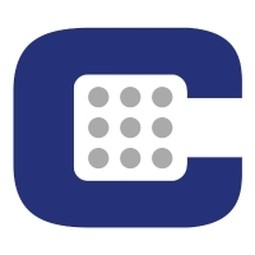Download PDF
Getting Touchyfeely with Touchscreen Design
Technology Category
- Analytics & Modeling - Predictive Analytics
- Application Infrastructure & Middleware - Data Visualization
- Platform as a Service (PaaS) - Application Development Platforms
Applicable Industries
- Consumer Goods
- Automotive
Applicable Functions
- Product Research & Development
- Quality Assurance
- Field Services
Use Cases
- Predictive Maintenance
- Remote Collaboration
Services
- Software Design & Engineering Services
- System Integration
- Training
The Challenge
Cypress Semiconductor faced the challenge of ensuring that their touchscreen technologies perform flawlessly under a variety of conditions and applications. This includes smartphones, laptops, automotive environments, industrial applications, and home appliances. Each application requires a different design, and the touchscreens must track finger or stylus positions with high accuracy. The capacitive touchscreens need to determine the touch object's size, location, duration, and movement direction. The engineers needed to create multiple electrostatic simulations for various device geometries and parameters, referred to as a 'design box'.
About The Customer
Cypress Semiconductor is a leading supplier of smartphone touchscreen technologies and touch-sensing solutions. Their technologies are used in a wide range of products, including smartphones, mp3 devices, laptops, automotive environments, industrial applications, and home appliances. The company is dedicated to ensuring that touchscreen applications perform flawlessly under various conditions, making it possible for users to interact seamlessly with their devices. Cypress Semiconductor employs a team of R&D engineers who utilize advanced simulation tools to optimize touchscreen designs for diverse applications.
The Solution
Cypress Semiconductor utilized COMSOL Multiphysics simulation software to optimize their touchscreen designs. The R&D engineers performed analyses to determine the electrical performance of the ITO pattern, measuring the change in mutual capacitance between electrodes when a stylus or finger is present. The software's ability to run on unlimited multiple cores and use cluster and cloud computing allowed engineers to quickly run many simulations with virtually no limits on the size of the design boxes analyzed. This enabled them to accurately model capacitive touchscreens by capturing changes between active electrodes in great detail. Additionally, Cypress engineers used the Application Builder in COMSOL Multiphysics to create simulation apps based on their models. These apps allowed customer support teams to run simulations for minor parameter changes without needing the direct involvement of R&D engineers. The COMSOL Server license enabled sharing of simulation apps with colleagues worldwide, allowing support engineers to experiment with thousands of different design options without using a seat on the COMSOL Multiphysics license.
Operational Impact
Related Case Studies.
.png)
Case Study
Improving Vending Machine Profitability with the Internet of Things (IoT)
The vending industry is undergoing a sea change, taking advantage of new technologies to go beyond just delivering snacks to creating a new retail location. Intelligent vending machines can be found in many public locations as well as company facilities, selling different types of goods and services, including even computer accessories, gold bars, tickets, and office supplies. With increasing sophistication, they may also provide time- and location-based data pertaining to sales, inventory, and customer preferences. But at the end of the day, vending machine operators know greater profitability is driven by higher sales and lower operating costs.

Case Study
Integral Plant Maintenance
Mercedes-Benz and his partner GAZ chose Siemens to be its maintenance partner at a new engine plant in Yaroslavl, Russia. The new plant offers a capacity to manufacture diesel engines for the Russian market, for locally produced Sprinter Classic. In addition to engines for the local market, the Yaroslavl plant will also produce spare parts. Mercedes-Benz Russia and his partner needed a service partner in order to ensure the operation of these lines in a maintenance partnership arrangement. The challenges included coordinating the entire maintenance management operation, in particular inspections, corrective and predictive maintenance activities, and the optimizing spare parts management. Siemens developed a customized maintenance solution that includes all electronic and mechanical maintenance activities (Integral Plant Maintenance).









